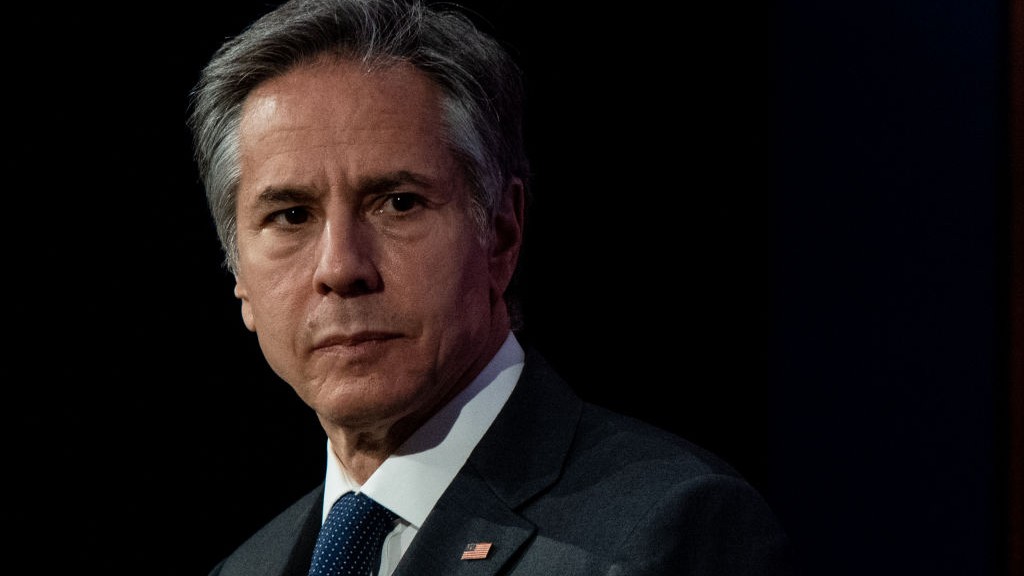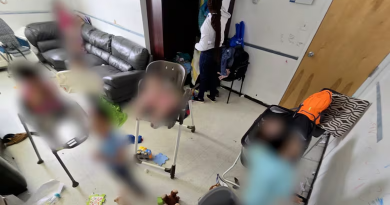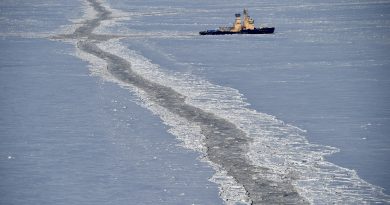Russian, U.S. foreign ministers to meet on sidelines of Arctic Council meeting

Russia’s Foreign Affairs Minister Sergey Lavrov and U.S. Secretary of State Antony Blinken have agreed to meet on the sidelines of next week’s Arctic Council meeting, the Russian Foreign Affairs Ministry said in a Russian-language news release on Wednesday.
The Arctic Council is an international forum made up of the eight northern circumpolar countries, and six Arctic Indigenous groups. The chairmanship of the body rotates through the countries every two years.
On May 20, current chair Iceland hands the gavel over to Russia.
In a phone call on Wednesday, Lavrov and Blinken discussed nuclearization on the Korean peninsula, the renewal of the Joint Comprehensive Plan of Action that put limits on Iran’s nuclear program, in addition to the upcoming Arctic Council meeting, the Russian ministry said.
“Sergey Lavrov and [Antony] Blinken agreed to hold a separate meeting “on the sidelines” of this session to consider key issues of bilateral relations and the international agenda,” the Russian ministry said.
In their news release, the U.S. State Department said they looked forward to collaboration with Russia on the Arctic.
“Secretary Blinken and Minister Lavrov discussed the upcoming Arctic Council Ministerial, where they will meet next week, and the potential to cooperate during Russia’s subsequent Arctic Council Chairmanship,” said U.S. State Department spokesman Ned Price.

Price said Blinken had also called for the release of Trevor Reed and Paul Whelan, two Americans imprisoned in Russia.
Whelan, a former U.S. marine, who also has Canadian citizenship, was sentenced to 16 years in prison for spying in 2020. Whelan maintains he is innocent and was set up for political reasons. Reed, also a former marine, was sentenced in 2020 to nine years in prison, for assaulting police in Russia while drunk. Reed also maintains his imprisonment was politically motivated.
“Secretary Blinken reiterated President Biden’s resolve to protect U.S. citizens and act firmly in defense of U.S. interests in response to actions by Russia that harm us or our allies,” Price said. “He called on Russia to release Paul Whelan and Trevor Reed so they can return home to their families.”
Reykjavik ministerial
This year’s ministerial, the biennial meeting is where the leadership of the Arctic Council is officially handed over, and when updates are given on projects from the forum’s six working groups, will be taking place in a hybrid format because of the pandemic.
Foreign ministers and permanent participants will attend the meeting in Reykjavik in person. Working group participants, observer states and organizations, and additional delegates from the Arctic states and Indigenous groups, will attend virtually.
Year formed: 1996
Arctic Council Countries: Canada, Denmark (Greenland), Finland, Iceland, Norway, Sweden, Russia, United States
Permanent Participants: Aleut International Association, Arctic Athabaskan Council, Gwich’in Council International, Inuit Circumpolar Council, Russian Association of Indigenous Peoples of the North, Saami Council
Current Chair: Iceland (2019-2021)
Upcoming Chair: Russia (2021-2023)
The Arctic Council was set up in 1996 to allow the Arctic countries to work together on environmental protection and sustainable development.
Although security and military issues are specifically excluded from the council’s work and founding document, Russia’s chairmanship comes at a time of increasing tensions between it and the West over the country’s actions in Ukraine, which included sending tens of thousands of troops to Ukraine’s border in April, and concerns in the West about Russia’s investment in military infrastructure in the North.
In April, the Biden administration expelled 10 Russian diplomats and imposed sanctions on Russians and companies in protest of Russia’s interference in the 2020 presidential election as well as hacking campaigns. In response, Russia expelled 10 American diplomats and banned certain officials from entering the country.
Write to Eilís Quinn at eilis.quinn(at)cbc.ca
Related stories from around the North:
Canada: Arctic Council finalizes plans for largely virtual ministerial in May, Eye on the Arctic
Finland: Finnish PM stresses importance of Arctic Council for region’s stability amidst climate change, Yle News
Iceland: From strategic plan to deliverables, Iceland gears up for Arctic Council ministerial, Eye on the Arctic
India: Pole to Pole: India’s Arctic White Paper, Blog by Marc Lanteigne
Ireland: Ireland ready to bring marine and scientific expertise to Arctic Council as observer, says Department of Foreign Affairs, Eye on the Arctic
Norway: Norway’s FM confirms participation in upcoming Arctic Council ministerial, The Independent Barents Observer



